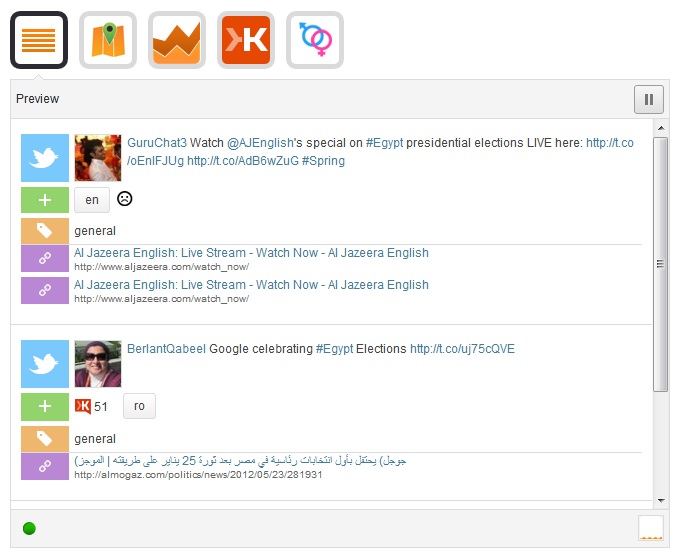Monitor the online social sentiment behind the Egyptian presidential elections
Over the next two days (May 23rd and 24th), Egypt will hold its first presidential election since the overthrow of Hosni Mubarak in January 2011. The historic election is the second with more than one presidential candidate, and is arguably considered the first truly free and fair election in 5,000 years.
In 2011, Egypt became known as a nation of social media activists following the use of Facebook and Twitter to spread information and organize protests. This came despite a low double-digit Internet penetration rate.
One would expect a flurry of international media attention given the hype surrounding the election and the attention given to the ‘Arab Spring’ events. At this point, however, it feels like many are taking Egyptian online activism for granted. And such sentiment isn’t necessarily bad; it suggests that Egyptians are viewed as motivated, resourceful, and believers in the power of technology to produce social change.
That said, perhaps the best way to monitor social action revolving around Egyptian voting on the 23rd and 24th is via DataSift, a platform that collects, filters, and analyzes large volumes of social data. Longtime user cyberandy has created a data stream that grabs tweets about the Election – based on certain tags (see below) – and estimates sentiment. All information is provided for free.
Of course, not all social mentions of the elections can be included, but the DataSift stream looks at the most popular candidates and general election terms:
- “Hamdeen Sabahy, حمدين صباحي”
- “Abol Fotouh, عبد المنعم أبو الفتوح”
- “Amr Moussa, عمرو موسي”
- “Mohamed Morsi, محمد مرسي”
- “Ahmed Shafik, أحمد شفيق”
- “egypt elections, egypt presidential elections, egypt election, EgyPresElec”
Overcoming the Arabic language barrier is a challenge, but can be done with a variety of online tools.
Have other suggestions of how to best monitor the crucial elections? Please let us know!













 Twitter
Twitter Facebook
Facebook Pinterest
Pinterest